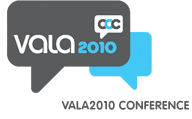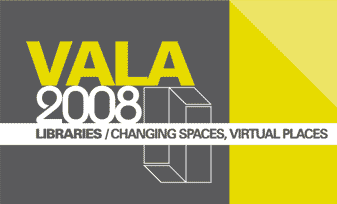 ANDS responses to the data management challenges in the Australian Code for the Responsible Conduct of Research
ANDS responses to the data management challenges in the Australian Code for the Responsible Conduct of Research
VALA 2010 CONCURRENT SESSION 6 – Repositories
Tuesday 9 February 2010, 15:15 – 15:45
Persistent URL: http://www.vala.org.au/vala2010-proceedings/vala2010-session-6-groenewegen
 David Groenewegen
David Groenewegen
Deputy Director, Australian National Data Service
http://ands.org.au
Please tag your comments, tweets, and blog posts about this session: #VALA2010
- VALA2010 Session 6 Groenewegen Paper 59.90 KB
- VALA2010 Session 6 Groenewegen Presentation 282.33 KB
- VALA2010-Session-6-Groenewegen-mp3-Podcast (17.3 MB)
- VALA2010 Session 6 Groenewegen Podcast 17.26 MB
Abstract
In early 2009, selected senior staff at a number of research institutions were invited by the Australian National Data Service (ANDS) to attend Forums to discuss the issues surrounding the Australian Code for the Responsible Conduct of Research and to share their strategies around compliance. These issues included the governance arrangements, the technological and policy requirements, and the best way to reach research staff. This paper discusses the Code and its relevance to data management, the issues identified by ANDS and the strategies recommended.

 ANDS responses to the data management challenges in the Australian Code for the Responsible Conduct of Research
ANDS responses to the data management challenges in the Australian Code for the Responsible Conduct of Research Repositories through the looking glass
Repositories through the looking glass Please tag your comments, tweets, and blob posts about this plenary presentation:
Please tag your comments, tweets, and blob posts about this plenary presentation: